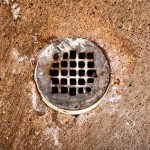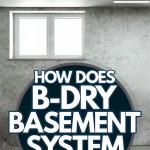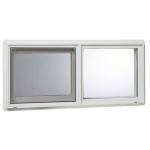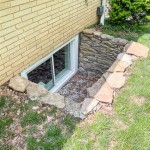Essential Aspects of Spray Insulation for Basement Walls
If you're considering spray insulation for your basement walls, it's crucial to understand its benefits, types, installation process, and potential drawbacks to make an informed decision. Here's an in-depth guide to essential aspects of spray insulation for basement walls:
Types of Spray Insulation
Two primary types of spray insulation are commonly used for basement walls:
- Closed-cell spray foam: Composed of high-density foam that forms a rigid seal, providing excellent insulation and moisture resistance.
- Open-cell spray foam: Made from a less dense foam that creates a network of interconnected cells, allowing for breathability and some moisture absorption.
Benefits of Spray Insulation
Spray insulation offers numerous advantages for basement walls:
- Improved insulation: Creates an airtight barrier that significantly reduces heat loss, lowering energy consumption and increasing comfort.
- Moisture resistance: Seals gaps and cracks, preventing moisture penetration and the formation of mold and mildew.
- Air sealing: Blocks drafts and reduces allergens, creating a healthier living environment.
- Soundproofing: Absorbs sound, reducing noise transmission from outside or between rooms.
- Structural support: Closed-cell spray foam can provide additional structural support to basement walls.
Installation Process
Spray insulation installation involves the following steps:
- Wall preparation: Surfaces are cleaned and any gaps or cracks are sealed.
- Application: Insulation is applied to the walls using specialized equipment, creating a seamless and uniform layer.
- Curing: Insulation is allowed to cure and expand, filling voids and gaps.
- Finishing: Trim or paint may be applied to the insulation for aesthetic purposes.
Drawbacks
While spray insulation offers numerous benefits, it also has some potential drawbacks:
- Cost: Spray insulation is generally more expensive than other insulation methods.
- Professional installation: Requires specialized equipment and training, making DIY installation challenging.
- Ventilation: Closed-cell spray foam can trap moisture if proper ventilation is not ensured.
- Environmental concerns: Some spray insulation products contain chemicals that may have environmental effects.
Conclusion
Spray insulation for basement walls offers significant benefits, including improved insulation, moisture resistance, air sealing, and soundproofing. However, it's important to consider its cost, professional installation requirements, potential moisture concerns, and environmental impact before making a decision. By weighing the advantages and drawbacks, homeowners can determine if spray insulation is the right choice for their basement walls and optimize their home's comfort, efficiency, and health.

Basement Wall Insulation Closed Cell Spray Foam

How To Insulate Diy Your Basement With Spray Foam

Basement Insulation Upstate Spray Foam

Spray Foam Insulation All You Ever Wanted To Know

Spray Foam Insulation On Basement Improves Home Energy Efficiency Worcester Ma

Best Practices For Insulating Your Basement With Spray Foam Eco Comfort

Basement Spray Foam Insulation Services For Your House

Basements Chicagoland Spray Foam

Insulating Basement Wall With Thermaldry System

The Importance Of Basement Insulation Eco Spray








